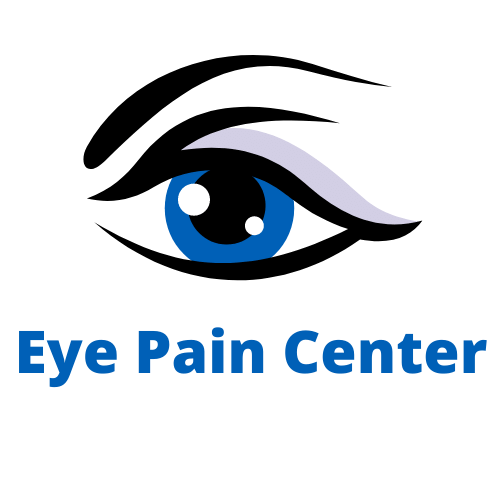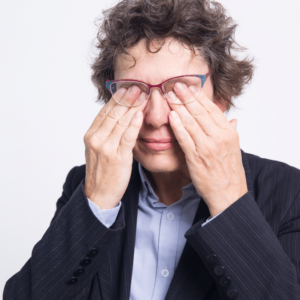What is an eye doctor called? There are two fundamental types of eye doctors: ophthalmologists and optometrists.
Eye doctor plays an essential role in providing eye care to consumers. Ophthalmologists differ from optometrists in their training levels and what they can diagnose and treat. Here’s a quick look at the fundamental types of eye health specialists.
Who Is an Ophthalmologist?
An ophthalmologist is a doctor specializing in diagnosing, treating, and managing conditions and diseases of the eye. They are trained to provide a wide range of services related to eye health, including prescribing eyeglasses and contact lenses, performing eye surgery, and managing medical conditions such as glaucoma, diabetes, and age-related macular degeneration.
Ophthalmologists provide expert medical care for the eyes, advanced diagnosis, and successful treatments. Their extensive training includes four years of higher medical education followed by at least three years of intense study in ophthalmology. During this period, ophthalmologists familiarize themselves with the intricate anatomy and physiology of our eyes and their disorders.
If you have any eye problem, you must see an ophthalmologist for a proper evaluation and treatment. This may include a comprehensive eye exam, during which the ophthalmologist will check your vision, assess the health of your eyes, and look for any signs of potential problems.
Ophthalmologists are medical doctors with specialized expertise in diagnosing and treating eye diseases. Ophthalmologists are qualified to diagnose and treat many eye diseases.
If you need eyeglasses or contact lenses, an ophthalmologist can help you choose the best type and prescription for your needs. They can also guide you on how to care for your eyewear and maintain good eye health properly.
In addition to providing routine eye care, ophthalmologists are trained to perform various surgical procedures to treat eye conditions. These may include laser surgery to correct vision problems, cataract surgery to remove cloudy lenses, and glaucoma surgery to lower eye pressure.
Ophthalmologists play a vital role in maintaining the health and function of our eyes. So, it is always good to have regular check-ups with an ophthalmologist to ensure the good health of your eyes. If you have any eye diseases, don’t hesitate to see an ophthalmologist for a proper evaluation and treatment.
Who Is an Optometrist?
An optometrist is an eye care professional specializing in diagnosing and treating vision problems. Optometrists typically examine the eyes to check for vision problems, eye diseases, and other vision-related issues. They can also prescribe corrective lenses, including eyeglasses and contact lenses, and advise on eye care and managing certain medical conditions such as glaucoma and diabetes.
Optometrists typically undergo four years of specialized training after completing college. They are licensed to practice optometry and are qualified to diagnose and treat various eye conditions, including nearsightedness, farsightedness, astigmatism, and presbyopia. They may also be trained to provide vision therapy and low-vision rehabilitation services.
If you have any concerns about your vision or eye health, you must see an optometrist for a proper evaluation and treatment. During an eye exam, an optometrist will assess your eyesight and may use a variety of tests and techniques to determine the health of your eyes and identify any vision problems. They may also ask you about your medical history and any medications you are currently taking, as these can affect your eye health.
In addition to diagnosing and treating vision problems, optometrists also play a crucial role in preventing vision loss by providing regular eye exams and screenings to detect potential problems early on. They may also recommend lifestyle changes or vision correction methods to help improve and maintain good eye health.
Ophthalmologists are eye doctors specializing in diagnosing and treating eye conditions and diseases and may perform surgery to correct vision problems. Optometrists work closely with other healthcare professionals, such as ophthalmologists, to provide comprehensive care for patients with eye conditions. If an optometrist identifies a more serious eye condition that requires medical treatment, they will refer the patient to an ophthalmologist for further care.
Optometrists are an essential part of the healthcare community, providing vital care and treatment for the eyes and vision. If you have any questions about your eye health, don’t hesitate to contact an optometrist for professional guidance and support.
Who Is an Optician?
An optician is a healthcare professional specializing in fitting and dispatching eyeglasses and contact lenses. They work closely with optometrists and ophthalmologists to help patients correct their vision and improve their eye health.
Opticians typically receive specialized training in the fitting and dispatching eyeglasses and contact lenses. They know the different types of eyewear available and can help patients select the best frames and lenses based on their needs and preferences.
An optician can help you choose the right pair if you need eyeglasses or contact lenses. They will measure the size and shape of your face and eyes to ensure that the eyewear fits properly and comfortably. They may also ask you about your daily activities and any vision problems you may be experiencing, as this can help them determine the best eyewear solution for you.
In addition to fitting and dispatching eyewear, opticians may also be responsible for repairing and maintaining eyeglasses and contact lenses. They may be trained to adjust eyeglass frames, replace broken lenses, and clean and disinfect eyewear to ensure it is in good condition.
Opticians play a crucial role in helping patients improve their vision and maintain good eye health. If you need eyeglasses or contact lenses or have any questions or concerns about your eyewear, don’t hesitate to contact an optician for professional guidance and support.
What Does an Ophthalmologist Do?
Some of the specific tasks and responsibilities of an ophthalmologist may include the following:
- Performing comprehensive eye exams to assess vision and eye health
- Prescribing eyeglasses and contact lenses to correct vision problems
- Performing surgery to correct vision problems, such as cataract surgery or laser eye surgery
- Managing and treating medical conditions that affect the eyes, such as glaucoma, diabetes, and age-related macular degeneration
- Diagnosing and treating eye infections and injuries
- Prescribing medication to treat eye conditions and diseases
- Providing regular eye exams and screenings to prevent vision loss
Ophthalmologists work closely with other healthcare professionals, such as optometrists, to provide comprehensive care for patients with eye conditions.
What Does an Optometrist Do?
Optometrists are primary eye care professionals who specialize in diagnosing and treating vision issues but may collaborate with ophthalmologists for more complex treatments or corrective surgeries.
Ophthalmologists are eye doctors who can treat serious eye diseases such as cataracts or glaucoma and perform corrective surgery when necessary. If necessary, an optometrist will refer a patient to an ophthalmologist for further treatment.
Some of the specific tasks and responsibilities of an optometrist may include the following:
- Performing comprehensive eye exams to assess vision and eye health
- Prescribing eyeglasses and contact lenses to correct vision problems
- Diagnosing and treating common eye diseases, such as nearsightedness, farsightedness, astigmatism, and presbyopia
- Managing and treating medical conditions that affect the eyes, such as glaucoma and diabetes
- Providing vision therapy and low-vision rehabilitation services
- Prescribing medication to treat eye conditions and diseases
- Providing regular eye exams and screenings to prevent v
What Does an Opticien Do?
Some of the specific tasks and responsibilities of an optician may include the following:
- Assisting patients in selecting eyeglasses and contact lenses based on their individual needs and preferences
- Measuring the size and shape of patients’ faces and eyes to ensure proper fit and comfort
- Fitting and dispatching eyeglasses and contact lenses
- Repairing and maintaining eyeglasses and contact lenses
- Adjusting eyeglass frames and replacing broken lenses
- Cleaning and disinfecting eyewear to ensure it is in good condition
- Providing advice and education to patients on the proper care and use of eyewear
Opticians play a crucial role in helping patients improve their vision and maintain good eye health. Don’t hesitate to contact an optician if you need eyeglasses or contact lenses or have any questions about your eyewear.
How to Choose an Eye Doctor?
Choosing the right eye doctor is essential, as the quality of care you receive can significantly impact your eye health and vision. Here are some tips to help you choose the best eye doctor for your needs:
- Determine your needs: Are you looking for a general eye exam, or do you have a specific eye condition that needs to be treated? This will help you determine what type of eye doctor you need to see.
- Research different options: Look for eye doctors who are reputable and have good ratings and reviews. You can ask for recommendations from your primary care doctor, friends, or family or search online directories or review sites.
- Consider the location: Choose an eye doctor who is conveniently located and easy to access. This will make it easier for you to attend regular appointments and follow-up visits.
- Check the qualifications: Make sure the eye doctor you choose is appropriately trained and licensed to practice. In the United States, ophthalmologists are medical doctors who have completed medical school and specialized training in ophthalmology, while optometrists are healthcare professionals who have completed specialized training in optometry.
- Consider the cost: Find out what insurance plans the eye doctor accepts and what out-of-pocket costs you may incur. If you don’t have insurance, ask about cash payment options.
- Check the office hours and availability: Choose an eye doctor who has convenient office hours and can accommodate your schedule.
- Consider the patient experience: Find out what the patient experience is like at the eye doctor’s office. Do they have a friendly and helpful staff? Are they able to answer your questions and concerns?
Overall, it’s essential to research and choose an eye doctor who is qualified, convenient and provides a positive patient experience. This will help ensure you receive the best care for your eye health and vision.
Vision Insurance and Eye Doctor
Vision insurance is a type of insurance that covers the cost of eye care services, such as routine eye exams, eyeglasses, and contact lenses. It is designed to help individuals and families afford the cost of maintaining good eye health and vision.
If you have vision insurance, you will typically pay a monthly premium in exchange for coverage of certain eye care services. The specific services covered by your vision insurance plan will depend on your chosen plan. Some plans may cover a wide range of services, while others may be more limited in scope.
If you need to see an eye doctor, you can typically use your vision insurance to cover the cost of the visit. Depending on your plan, you may need to pay a copay or coinsurance for certain services.
It is essential to carefully review the terms of your vision insurance plan to understand what is and is not covered. You should also be aware of any exclusions or limitations that may apply to your coverage.
If you do not have vision insurance, you may still be able to see an eye doctor and pay for services out-of-pocket. Many eye doctors offer flexible payment options and may be willing to work with you to create a payment plan that meets your needs.






